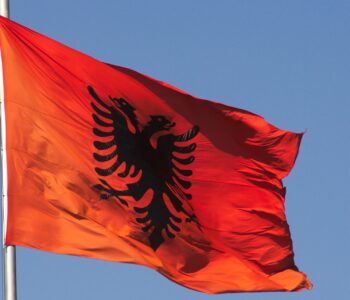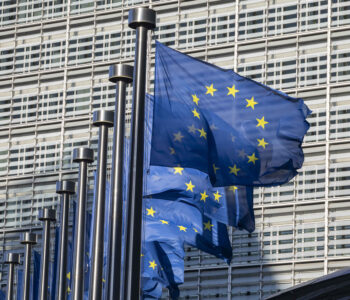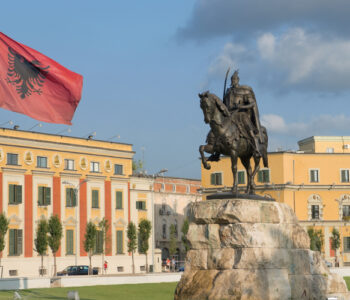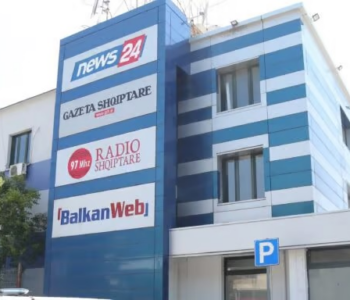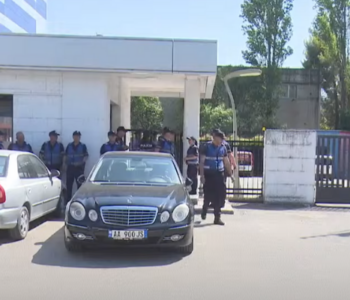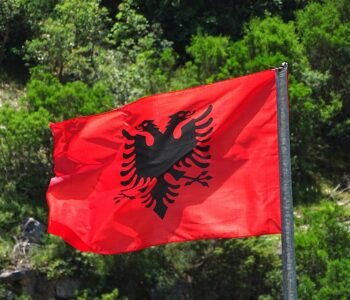Our organisations welcome the sharpening of criticism of certain countries engaging in egregious media freedom violations by the Commission in this year’s report, particularly Serbia and Georgia, and stress that assessments for all countries must now translate into effective progress on media freedom, media pluralism and freedom of expression.
The Enlargement Package recognises freedom of expression, media freedom, and pluralism as key pillars of a democratic society in the accession process. Although some improvements have been noted, the media sector in most candidate countries remains marked by persistent and systemic challenges, including political interference, lack of regulatory independence, and limited pluralism, as well as threats to the safety of journalists.
The report emphasises that the European Commission insists on the highest quality of reforms, especially regarding the rule of law, democratic institutions, and fundamental freedoms. However, some crucial media freedom issues deserve more attention in this report, which we highlight here.
The MFRR, which monitors national media landscapes and advocates for free media in all EU Candidate Countries as part of its mandate, seeks to spotlight the main concerns we want to be tackled in the enlargement process, as well welcome positive steps forward.
Backsliding on media freedom
Georgia: The report accurately highlights severe backsliding, leading Georgia to decline to an early stage of preparation in the area of freedom of expression. This is the second consecutive year of backsliding, illustrating an escalating press freedom crisis driven by the ruling Georgian Dream party. Since the protests were sparked by the government’s decision in November 2024 that Georgia would halt its EU membership negotiations until the end of 2028, the government’s crackdown on media and civil society intensified. Since the start of the protests in November, the MFRR’s Mapping Media Freedom (MapMF) platform documented 175 attacks affecting 288 media workers with the police and security forces as well as government officials being the major source of the attacks. Since MFRR started active monitoring of Georgia, in December 2023, MapMF has documented a total of 262 media freedom violations in the country affecting 433 media workers, which is the highest number of alerts recorded during the same period among EU candidate countries.
Each day, Georgia moves closer to becoming a fully consolidated authoritarian regime, as the ruling Georgian Dream party intensifies its efforts to erode democracy and stifle dissent. Journalists have been viciously beaten, verbally assaulted, threatened, and detained. Their equipment has been confiscated and destroyed, and their work repeatedly obstructed. At the same time, government smear campaigns to discredit independent journalism have continued unabated. The Georgian Dream is adopting repressive legislation at an alarming rate, making it nearly impossible for independent media and civil society organisations to operate. As the report outlines, new legislation, including amendments to the Law on broadcasting, the Foreign Agents Registration Act and the legislative package on family values and protection of minors, all negatively affect the right to freedom of expression and the ability of the media to operate freely. Additionally, the Georgian Dream Parliament adopted amendments to the Law on Freedom of Speech and Expression, and the Organic Law on Common Courts.
The country report on Georgia adequately assesses the capture of the Georgian Public Broadcaster (GPB), noting that it “lacks independence, has biased editorial policy and contributed to the promotion of anti-EU rhetoric.” MFRR repeatedly raised concerns about the GBP, which has long been an instrument of the Georgian Dream government, and suppressed efforts by journalists who try to report free of political control, including firing several journalists. It further acknowledges the deterioration of journalists’ safety, including the use of arbitrary arrests, fines, and SLAPPs against journalists, and mentions the unjust imprisonment of Mzia Amaglobeli, founder and director of the online media outlet Batumelebi. The report brings into focus the severe crackdown on journalistic freedoms by the government, which make Georgia one of the key flashpoints for media freedom in Europe in need of urgent international attention. At this stage, the EU considers Georgia a “candidate country in name only” and urges authorities to reverse course. In the face of rising authoritarianism, Georgian media demonstrate exemplary resilience and refuse to be silenced. MFRR reiterates our call on the Georgian Dream to stop the crackdown on independent media and repeal repressive legislation. We also renew our call on the European Union and its member states to step up pressure on Georgia and stem the rapid descent into authoritarianism.
Serbia: The report is explicit in its assessment of backsliding on freedom of expression in Serbia, emphasising the current crisis and polarisation of society following the student-led anti-corruption protests initiated in November 2024. Attacks against free media continue to take place effectively unaddressed by authorities. Since November 2024, MapMF has documented 190 attacks affecting 341 media professionals, media outlets and journalists’ representatives. Of these, 82 journalists were targeted during demonstrations, with 51 media actors assaulted. The report also notes the smear campaigns and verbal attacks from government officials targeting journalists and media, denigrating critical journalists as enemies of the state. The latest example of these attacks is the orchestrated smear campaign against the Independent Journalists’ Association of Serbia (NUNS) from the newly established journalists’ association ANS and pro-government tabloids, who falsely accused NUNS of plotting violence during demonstrations by distributing protective equipment to journalists ahead of demonstrations.
Amidst a perilous environment for independent reporting, the future of independent media outlets remains uncertain. A recent investigation by the Organized Crime and Corruption Reporting Project (OCCRP) suggested efforts by President Vučić to “weaken” the editorial autonomy of the two remaining critical privateTV stations, N1 and Nova TV. These same broadcasters were labelled by Vučić as “doing pure terrorism”, and were removed from the SBB network as of 16 April 2025, retaining only their online platforms. Political interference is also contaminating newsrooms. The MapMF platform has documented several cases of journalists being dismissed or forced to resign in direct retaliation for defending ethical journalism and/or resisting censorship. Journalists at the public broadcaster, RTS, which was criticised for its unbalanced coverage of the protests, have not been spared pressure.
While media freedom has been in a state of crisis for decades in Serbia, the current escalation of events over the past year represents one of the deepest downturns in press freedom in the country’s recent history. The lack of independence of regulatory bodies is particularly concerning and it is demonstrated inter alia by the repeatedly obscure process of appointment of the members of the Commission for Electronic Media (REM). SLAPPs and other forms of intimidation continue to represent a threat for journalists in Serbia. MFRR organisations, which conducted a solidarity mission to Belgrade and Novi Sad earlier this year, have repeatedly called for a tougher stance by the EU in response to clear Serbian backsliding on media freedom and freedom of expression. While we welcome the long overdue hardening of language in the current report, we now call for the EU to exert maximum effort into ensuring sustained and concrete democratic reforms as part of Serbia’s accession process.
Türkiye: Türkiye remains at an early stage of preparation in freedom of expression, with further backsliding observed in the overall state of democracy and media freedom, according to the 2025 report. Judicial actions against journalists and media intensified through politically motivated prosecutions and arrests, often relying on vague legal definitions and selective application of the law. The implementation of criminal laws related to national security, counterterrorism and defamation continued to hinder freedom of expression. The reporting period saw a further increase in arrests and detentions of journalists, underscoring the disproportionate use of legal measures to intimidate and silence media. For instance, Furkan Karabay, a journalist whose social media posts were deemed “insulting the president” was arrested. The 2022 Disinformation Law and the new Cybersecurity Law have also introduced vague provisions enabling censorship and surveillance.
Media ownership in Türkiye already remains highly concentrated among pro-government business groups. Türkiye’s broadcast regulator RTÜK maintained issuing discriminatory administrative and monetary fines against independent and opposition media outlets, further undermining media pluralism. Nearly 100 million liras in fines were imposed, along with 25 days of broadcast bans — including two full blackouts — and a government-appointed trustee took control of a TV channel. The selective allocation of public advertising and control over print distribution also damaged financial sustainability of independent and minority media outlets. Independent media outlets receiving foreign funding were frequently subjected to hostile rhetoric and smear campaigns by pro-government media. Online freedom is likewise restricted, as authorities frequently block access to critical websites, news articles, and social media accounts, and impose temporary shutdowns or throttling of platforms during protests or crises.
As the overall trend remains deeply concerning, marked by political interference and instrumentalisation of the judiciary, the MFRR reiterates the urgent need for Türkiye to overhaul its restrictive legislation and broadcasting frameworks. Reflecting the report’s assessment, we further echo the call for the release of detained journalists and human rights defenders, and urge the authorities to safeguard independent reporting as a cornerstone of media freedom and pluralism in Türkiye.
No progress on media freedom
Bosnia and Herzegovina: While the report indicates that Bosnia and Herzegovina shows ‘some level of preparation’ in the area of freedom of expression, an ongoing political crisis at the entity level and a series of restrictive legislative changes have severely stalled paths for any meaningful improvement. The EU correctly reports ‘no progress’ achieved during the reporting period in guaranteeing freedom of expression, media freedom, and the protection of journalists. According to MFRR monitoring, the first half of 2025 instead saw a rise in attacks compared to the same period the previous year of threats including verbal attacks often perpetrated by politicians, physical assault, and interference with journalists’ work.The sudden closure of Sarajevo-based AlJazeera Balkans in July 2025, due to the cited financial issues, after 14 years of broadcasting further undermines media pluralism in Bosnia and Herzegovina and across the region. The closure has left over 200 media professionals in Sarajevo, and other cities in the region without a job.
The situation remains particularly challenging in Republika Srpska. In March 2025, the region’s National Assembly adopted a foreign-agent style law which targets independent media and civil society organisations that receive foreign funding, subjecting them to onerous reporting requirements under the risk of sanctions if they fail to comply with the new rules. In addition, criminal defamation, reintroduced into the Penal Code in 2023, forms part of a disturbing trend of expanding liability for dissenting opinions and creates a chilling effect, undermining previous progress as it was decriminalised more than 20 years ago. Our organisations consistently oppose criminal defamation laws, as they constitute a disproportionate interference with the right to freedom of expression and are incompatible with international human rights standards. While the continuing political standoff in Republika Srpska continues, progress on media freedom looks set to face sustained hurdles without considerable democratic reform.
Kosovo: The country has some level of preparation but made no progress in the past year. The MFRR believes that this evaluation is well justified, considering that the government passed a heavily criticised media law, titled Law on the Independent Media Commission (IMC). The Law was then annulled by the Constitutional Court demanding the prompt drafting of a new proposal. The boards of the public broadcaster and the media regulatory body remain dysfunctional due to a lack of quorum, as the parliament failed to elect new members. The public broadcaster faced turbulent times due to political interference, which culminated in the removal of six editors from its TV programs. This led the Ombudsperson to open an investigation into censorship. The situation further deteriorated in August when the staff of the public broadcaster received their salaries almost a month late – a situation that has been repeated in November.
Journalists continue to face difficulties in accessing information, as institutions remain largely closed to journalists and activists. The number of complaints filed with the Agency for Information and Data Protection over refusals of Freedom of Information (FOI) requests continues to rise on a yearly basis. Verbal and other forms of attacks and incidents also marked the year 2025, with government officials, including Prime Minister Albin Kurti, publicly attacking journalists and media outlets. Verbal and other forms of attacks and incidents also marked the year 2025, with government officials, including Prime Minister Albin Kurti, publicly attacking journalists and media outlets.
To improve the media situation, the MFRR urges the government and members of the ruling party Vetëvendosje to immediately stop their anti-journalist rhetoric. We further urge the incoming government to commit to preparing a comprehensive package of laws related to media freedom, ensuring that this package aligns with EU and Council of Europe standards and enjoys broad political support. We further call on the government to immediately release the funds owed to RTK so that salaries can be paid and the broadcaster can continue to operate, and for the Assembly of Kosovo to restore RTK’s legal governance structures and appoint the remaining board members to ensure the election of a permanent Director General without delay. Unless steps are taken to address converging crises, long term democratic media freedom reform in Kosovo risks heading into reverse.
Limited progress on media freedom
Albania: Although considered a frontrunner among candidate countries, when it comes to freedom of the media and freedom of expression, our organisations stress that Albania continues to suffer from numerous structural weaknesses and challenges to its still fragile media ecosystem. While the 2025 enlargement report assesses Albania as having some and a moderate level of preparation, the MFRR warns that recent legislative initiatives risk severely undermining recent tangible progress. In particular, draft amendments to the Penal Code on provisions related to defamation, insult and influencing judicial independence pose direct threats to media freedom and the fundamental right to freedom of expression. Our organisations have criticised these proposed changes and called for them to be amended.
Further proposals by the parliamentary majority to significantly restrict journalists’ access to the Parliament of Albania, though not yet implemented, pose a threat to the public’s right to information. The non-execution of court decisions and the obstruction of journalistic activity at the Tirana premises of Focus Media Group also emerged as a key flashpoint for media freedom in 2025. Elsewhere, the country still faces serious challenges due to concentrated media ownership, strong ties of media owners to vested political and business interests, which undermines independence and public trust, as well as some instances involving the intimidation of journalists – all of which require sustained attention and action.
North Macedonia: The European Commission correctly observes a moderate level of preparation on freedom of expression in North Macedonia. The report accurately reflects the main challenges facing the media sector in the country, including the partial alignment of media legislation with European requirements, the need to strengthen the independence and capacity of the regulator (AAAMS), the ongoing reform of the public broadcaster (MRT), and the persistent risks to the safety of journalists (including physical attacks and online harassment). While the media environment in North Macedonia is generally stable, the difficult working and economic conditions faced by many journalists – especially in local and small media outlets struggling to remain viable – needs to be given more emphasis and considered as prerequisites for moving forward in the EU enlargement process.
Of particular concern are also the lack of specific safeguards against abusive litigation (anti-SLAPP legislation) and the growing use of abusive lawsuits. Furthermore, the MFRR emphasises the need to undertake a comprehensive reform of the Media Law to address the evolving media landscape, particularly in the digital sphere. North Macedonia’s small and highly fragmented media market remains economically fragile, leaving media outlets exposed to political and financial pressures. State funding and advertising continue to reflect strong political influence over the media. Particularly concerning is the lack of transparency in the allocation of state budget funds for political advertising during election campaigns, a practice that distorts the market, increases media dependence on major political parties, and weakens editorial independence and media pluralism.
Some progress on media freedom
Ukraine: Overall, the media freedom situation in Ukraine remains positive, despite numerous and serious war-time pressures. Restrictions imposed within the scope of martial law regulations are “overall proportionate”, according to the Commission. While the most serious issues putting in danger the physical safety of journalists are caused by Russia’s war of aggression, the media also face a number of concerns created by domestic actors. Authorities typically react promptly to physical attacks, direct intimidation and harassment of journalists, by opening criminal cases to investigate the events. However, these criminal cases often fail to produce concrete results, and those responsible for the attacks are seldom identified and prosecuted.
Authorities must ensure that restrictions imposed temporarily by martial law comply with key public rights and interests, such as access to information and media freedom. This is especially the case of Ukraine’s “United News” telethon: a government-funded project, the telethon pools Ukraine’s main TV channels into a common television broadcast, the content of which has been criticised domestically and abroad as unreliable and failing to meet objectivity standards. In its report, the Commission called upon Ukrainian authorities to reassess the format of the telethon “at latest by the time of the eventual suspension of martial law”. The independence of Ukraine’s national media regulator should be strengthened, and the transparency of media ownership increased, in line with the provisions of the European Media Freedom Act (EMFA). Efforts already made to implement the European anti-SLAPP directive are commendable, however these are only at a first stage of development. Overall, despite significant war-time pressures and challenges, the domestic situation for media freedom in Ukraine remains broadly positive, yet fragile.
Montenegro: Montenegro demonstrates moderate preparedness in freedom of expression, yet significant concerns persist regarding media independence and pluralism. The MFRR welcomes the overall positive trend noted by the Commission regarding Montenegro but notes a troubling increase in attacks against journalists and media outlets, with 17 recorded incidents affecting 25 individuals and organizations since January 2025, a sharp rise from six incidents in 2024. While physical assaults are rare, verbal abuse, often perpetrated by private individuals, including serious death threats, both online and offline, is particularly alarming. Furthermore, public officials and politicians have been primarily responsible for discrediting journalists’ work, underscoring a lack of understanding of the media’s democratic role. Additionally, the absence of a signed sectoral collective agreement contributes to poor working conditions and a lack of social dialogue.
Public broadcasters, the Radio and Television of Montenegro and the Agency for Audiovisual Media Services (AMU) are particularly exposed to political pressure. The fact that AMU’s Council has been operating without its full composition since December 2024 due to the non-election of two members remains another serious issue. In parallel, ongoing court proceedings challenging the legality of the RTCG Director General’s appointment, and the recent conviction in first-instance proceedings against RTCG Council members for abuse of official position during the election, further raise concerns about transparency and adherence to legal procedures. However, at a time when national legislation requires further alignment with European media laws, the Ministry of Culture and Media’s newly formed working group to implement the European Media Freedom Act and the Digital Services Act into Montenegrin legislation is a positive step forward. Further action is needed to consolidate existing gains and push for further progress on media freedom and freedom of expression.
Good progress on media freedom
Moldova. Moldova is assessed as having between having some and a moderate level of preparation in freedom of expression and has made tangible progress, notably in adopting new legislation on access to information, implementing the law on the Media Subsidy Fund, amending the audiovisual media services code (AVMSC) and on advertising, as well as on the protection of journalists. Rules for selecting members of the public service broadcaster and the Audiovisual Council have been reviewed. While the overall climate for free and independent journalism remains relatively healthy compared to other EU candidate countries in the region, local divergences remain acute and all media face intense challenges to their financial viability.
In a landscape characterised by the division between pro-Western and pro-Russian politics, journalists face challenges in navigating polarised news environments and disinformation. The fragility of the media and public interest journalism due to the small advertising market is particularly concerning. While the media environment is overall healthy in most of the country, in Transnistria, a region occupied by pro-Russian military forces, no media are allowed to freely function. Issues also persist in the largely Russian-speaking regions of Gagauzia and Taraclia, where independent journalists report being regularly intimidated by local authorities and the population. The MFRR welcomes recent progress on freedom of expression and media freedom in Moldova and urges national authorities to continue on the trajectory as part of its EU aspirations.
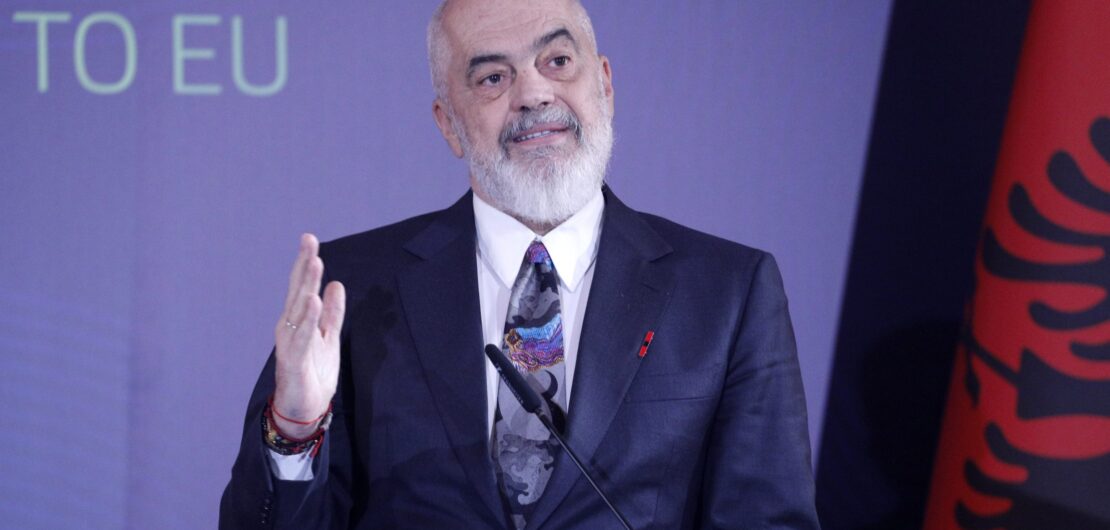 Library
Library

